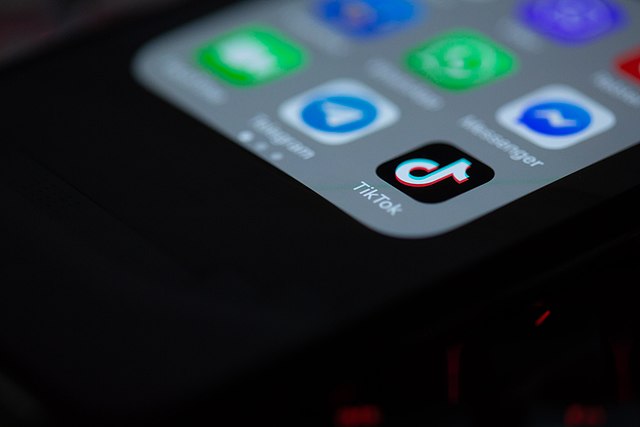AI presidents invade TikTok
March 30, 2023
“You guys down for some Mario Kart?” says the voice of Donald Trump.
“Bet. I’ll be Yoshi,” responds the voice of Joe Biden.
Content creators on TikTok have been using artificial intelligence programming to replicate the voices of public figures ranging from George Bush to Drake. Then, using the incredibly believable voices, they create skits where those figures play popular games like “Minecraft,” “Dead by Daylight” and “Among Us.” The videos are objectively hilarious – hearing realistic voices of the current president and former presidents call each other names and saying obscenities catches you off guard.
But how does it all work?
AI voice programming works through a generative AI, which is a machine learning model that is trained on data that it is given. These programs are readily available online through a quick search on Google. A creator will feed clips they find of a famous person speaking into one of the programs. The program emulates the sound waves of the person’s voice and it generates the person’s voice reading whatever script was inputted.
Right now, the worst these scripts are doing is sending Barack Obama, Ben Shapiro, Donald Trump, Tucker Carlson, Joe Biden, Elon Musk and Drake to Chick-Fil-A.
As funny as the skits may be, the AI voices sound practically identical to their real voices, which may raise concerns.
“We use the same technology (to make TikToks) to create sound bytes of famous people or politicians that say something they never said,” said David Gunkel, a media studies professor at NIU. “Because we have been trained in the last hundred years of media to believe what we hear and see … we are predisposed to believe these (AI generated voices) as somehow being accurate.”
Even with America’s decline in trust regarding written news, it is hard to deny what we are able to see and hear. Whether it’s Donald Trump asking for a Double Quarter Pounder meal from McDonald’s or a sound byte of him saying something controversial that he never said – when it sounds like him, we might believe it’s him. This obviously poses some issues, majorly because it is hard to govern AI programs.
“The difficulty right now is that we have no regulatory environment at the federal level or even the state level,” Gunkel said.
Because these programs are relatively new, the law will take a while to catch up to the trend. An example of this is AI art programs infringing on intellectual property. The formation of copyright laws is lagging behind how much art is being generated. So, legal ramifications, if any, for the AI voices are not likely in the foreseeable future.
There may come a time when we will hear the voice of a celebrity saying something nefarious, but we as people will have to adapt to the new technology.
“The evidentiary component of (news) is going to be less stable and it’s going to be less trustable by us. And that means the methods by which we can trust what we see, read and hear is going to have to be reinvented,” Gunkel said.
People have dealt with this before and will continue adapting further, which means we can start using artificial intelligence for things that were unthinkable in the past.
“(AI) creates new opportunities for creatives. Filmmakers can make amazing things now by producing the voices of dead people … In the past that might have been really expensive or almost prohibitive to create,” Gunkel said.
Whether for comedy skits on TikTok, creating sound bites for shady purposes or to reinvent film or music, AI programming is something that will continue to evolve as we continue to use it.







